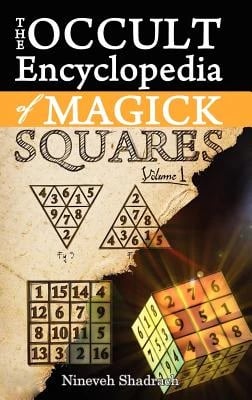The Occult Psychology Phenomena
At its core, occult phenomena represent the human mind's quest to explore what lies beyond the observable and measurable. | The idea is a balance between the two worlds.
Fouad FARJANI
2/13/2025
The occult, often shrouded in mystery and misunderstood by many, intertwines psychology, philosophy, and the human yearning for the unknown.
At its core, occult phenomena represent the human mind's quest to explore what lies beyond the observable and measurable.
The psychology behind occult practices often stems from the subconscious need for meaning and control in an unpredictable world. Carl Jung’s concept of the collective unconscious suggests that symbols, archetypes, and mystical experiences are embedded in the human psyche, influencing our thoughts and behaviors. This framework offers insight into why rituals, symbols, and esoteric knowledge captivate the human mind.
⠀⠀⠀⠀⠀⠀⢀⣤⣶⣿⣿⣿⣷⣶⣤⡀⠀⠀⠀⠀⠀⠀ ⠀⠀⠀⢀⣴⣿⣿⣿⣿⣿⣿⣿⣿⣿⣿⣿⣷⣦⡀⠀⠀⠀ ⠀⠀⣴⣿⣿⣿⣿⣿⣿⣿⣿⣿⣿⣿⣿⣿⣿⣿⣿⣦⠀⠀ ⠀⣼⣿⣿⣿⣿⣿⣿⣿⣿⣿⣿⣿⣿⣿⣿⣿⣿⣿⣿⣧⠀ ⣾⣿⣿⣿⣿⣿⣿⣿⣿⣿⣿⣿⣿⣿⣿⣿⣿⣿⣿⣿⣿⣷ ⣿⣿⣿⣿⣿⣿⣿⣿⣿⣿⣿⣿⣿⣿⣿⣿⣿⣿⣿⣿⣿⣿ ⣿⣿⣿⣿⣿⣿⣿⣿⣿⣿⣿⣿⣿⣿⣿⣿⣿⣿⣿⣿⣿⣿ ⣿⣿⣿⣿⣿⣿⣿⣿⣿⣿⣿⣿⣿⣿⣿⣿⣿⣿⣿⣿⣿⣿ ⣿⣿⣿⣿⣿⣿⣿⣿⣿⣿⣿⣿⣿⣿⣿⣿⣿⣿⣿⣿⣿⣿ ⣿⣿⣿⣿⣿⣿⣿⣿⣿⣿⣿⣿⣿⣿⣿⣿⣿⣿⣿⣿⣿⣿ ⠹⣿⣿⣿⣿⣿⣿⣿⣿⣿⣿⣿⣿⣿⣿⣿⣿⣿⣿⣿⣿⠏ ⠀⠹⣿⣿⣿⣿⣿⣿⣿⣿⣿⣿⣿⣿⣿⣿⣿⣿⣿⣿⠏⠀ ⠀⠀⠈⠻⣿⣿⣿⣿⣿⣿⣿⣿⣿⣿⣿⣿⣿⣿⠟⠁⠀⠀ ⠀⠀⠀⠀⠀⠈⠛⠻⣿⣿⣿⣿⣿⣿⣿⣿⠟⠛⠁⠀⠀⠀ ⠀⠀⠀⠀⠀⠀⠀⠀⠀⠉⠉⠛⠛⠛⠉⠉⠀⠀⠀⠀⠀⠀
Philosophers like Socrates and Nietzsche echo this sentiment through their relentless pursuit of wisdom and self-mastery. Socrates taught that true knowledge comes from acknowledging one's ignorance, while Nietzsche’s philosophy emphasized the transformation of inner chaos into creative brilliance. This mirrors the occult’s journey—transforming the unknown into personal enlightenment.
⠀⠀⠀⠀⠀⠀⢀⣀⣀⣀⣀⣀⡀⠀⠀⠀⠀⠀⠀ ⠀⠀⠀⢀⡴⠚⠉⠀⠀⠀⠀⠈⠙⠲⡄⠀⠀⠀⠀ ⠀⠀⢀⠞⠀⠀⡠⠔⠒⠒⠢⡄⠀⠀⠹⡄⠀⠀⠀ ⠀⢀⠏⠀⠀⢰⠁⠀⠀⠀⠀⡇⠀⠀⠀⢹⠀⠀⠀ ⠀⢸⠀⠀⠀⢸⠀⢠⡄⠀⢠⡇⠀⠀⠀⡈⡇⠀⠀ ⠀⢸⠀⠀⠀⠘⢆⠀⠀⠀⡸⠀⠀⠀⢀⠃⡇⠀⠀ ⠀⠈⡆⠀⠀⠀⠀⠙⠒⠒⠁⠀⠀⣠⠊⠀⡇⠀⠀ ⠀⠀⠹⡄⠀⠀⠀⠀⠀⠀⠀⠀⢰⠃⠀⡰⠁⠀⠀ ⠀⠀⠀⠈⠓⠶⠶⠶⠶⠶⠶⠖⠛⠋⠉⠀⠀⠀⠀
This mandala reflects the Socratic method—questions spiraling towards the truth. The symmetry signifies balance in ethics and virtue, with a deliberate, structured approach to knowledge.
⠀⠀⠀⣀⡴⠒⠒⠒⠒⠒⠒⠒⢦⡀⠀⠀⠀⠀ ⠀⠀⣠⠞⠁⠀⠀⠀⠀⠀⠀⠀⠀⠈⠳⡄⠀⠀⠀ ⠀⡴⠁⠀⠀⣀⡴⠒⠒⠒⠒⠲⢄⠀⠀⠹⡄⠀⠀ ⢸⡇⠀⢀⠞⠁⠀⠀⠀⠀⠀⠀⠀⠹⡄⠀⢻⠀⠀ ⢸⡇⠀⠸⠀⠀⣀⡤⠤⠤⣄⠀⠀⠀⡇⠀⢸⠀⠀ ⠈⢧⠀⠀⢀⠞⠁⠀⠀⠀⠈⠳⡄⠀⡇⠀⡞⠀⠀ ⠀⠈⢳⡀⠸⠀⠀⠀⠀⠀⠀⠀⠁⢠⠇⣰⠃⠀⠀ ⠀⠀⠀⠙⠳⣄⠀⠀⠀⠀⠀⠀⣠⠞⠋⠀⠀⠀⠀ ⠀⠀⠀⠀⠀⠀⠉⠉⠉⠉⠉⠉⠀⠀⠀⠀⠀⠀⠀
This mandala embodies Nietzsche’s dynamic energy, breaking from symmetry to represent his challenge to conventional morals. The upward movement symbolizes the Übermensch, striving for self-overcoming and individuality.
Occult practices such as alchemy, divination, and mysticism often serve as psychological tools. Alchemy, for instance, symbolizes the process of self-transformation—turning base instincts into higher consciousness. Divination reflects the mind’s attempt to predict and influence the future, offering comfort in uncertainty.
⢀⣀⣤⣤⣤⣤⣀⡀⣀⡴⠒⠒⠒⠒⠒⠒⢦⡀⣀⡴⠖⠒⠒⠒⠲⠦⣄
⣠⡾⠛⠉⠉⠉⠉⠉⠙⠛⢷⡴⠋⠀⢀⡤⠤⡄⠀⠈⠷⡾⠁⠀⢀⣀⣀⣀⡀⠀⠈⢷
⣼⠋⠀⢠⣤⣄⠀⠀⣠⣤⡄⡼⠁⠀⢀⡞⠀⢀⡇⢳⡀⠀⠀⠹⡇⠰⠋⠁⠀⠈⠙⠆⠀⢸⡇
⢸⡇⠀⢰⣿⣿⣿⠀⢰⣿⣿⣿⡇⠀⠀⡜⠁⢀⡞⢹⡀⢹⠀⠀⡇⠘⠁⠀⠀⠀⠀⠀⠁⠀⠸⡇
⠸⡇⠀⠸⣿⣿⣿⠀⠸⣿⣿⣿⡇⠀⠘⡇⠀⢸⠀⠈⡇⢸⡇⠀⡇⠀⠐⠦⣀⠀⠀⣀⠴⠂⠀⢠⡇
⠀⠹⡀⠀⠈⠉⠁⠀⠀⠈⠉⠁⢿⠀⠀⠹⡄⠀⠳⡀⠁⠀⡇⠀⣰⠇⢿⠀⠀⠀⠀⣼⠁
⠀⠀⠙⠳⢦⣤⣀⣀⣀⣀⣤⠴⠃⠳⡀⠀⠹⡄⠀⠘⢦⡴⠁⢠⡟⠀⠳⣄⠀⠀⣀⡴⠃
⠀⠀⠀⠀⠀⠀⠀⠀⠀⠀⠀⠀⠀⠀⠀⠙⠒⠚⠁⠀⠀⠀⠉⠒⠚⠀⠀⠉⠙⠒⠒⠋⠉
This lines represent:
Alchemy (left): Transformation and the pursuit of knowledge.
Divination (center): The unseen paths and cosmic insights.
Mysticism (right): The transcendence beyond material realms.
However, the pursuit of occult knowledge poses questions: Does the exploration of hidden realms elevate human consciousness, or does it lead to psychological instability?
Can the mind bear the weight of unseen forces without succumbing to fear or madness?
In essence, the psychology of occult phenomena reveals that the human mind is both curious and fragile.
The true challenge lies in balancing the pursuit of hidden knowledge with mental and emotional stability.
















